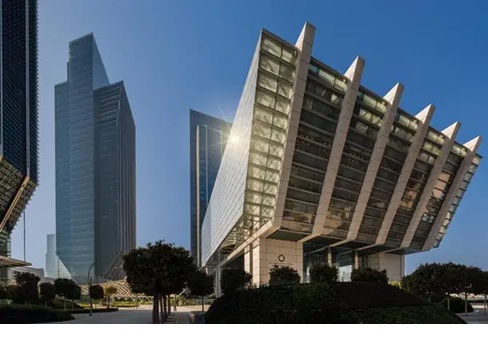Hoko Agency, known for its cutting-edge campaigns for global brands including Mercedes-Benz, DP World, Hublot, Red Bull, Zegna, and LVMH, has announced the acquisition of UAE metaverse company Everdome.
As per the press release the strategic acquisition supports the growth of HumAIn Assets, Hoko’s newest venture aimed at reimagining content creation through a fusion of human creativity, artificial intelligence, and community engagement.
Since its inception in 2022, Everdome has delivered metaverse experiences for partners such as OKX and Alpine Web3, while playing a key role in initiatives like the UAE government’s Jahiz program. Their success has been driven by a nimble, Web3-native approach, community-focused storytelling, and a deep understanding of immersive digital marketing.
Through this acquisition, Everdome’s $DOME token and core leadership team will integrate into HumAIn Assets, a platform designed to reshape the way digital content, from imagery to video to copy, is commissioned, created, and delivered.
At the helm of this initiative are Bally Singh, Chairman of Hoko Agency; Scott Melker, a leading voice in Web3 media; and Everdome CEO Jeremy Lopez, who brings extensive expertise in Web3 execution, creative marketing, and community engagement.
“Our mission is simple: to deliver scalable, high-quality content without compromising on emotional resonance, timing, or creativity,” said Bally Singh. “While AI can automate much of the process, the final layer, the taste, context, and timing, remains inherently human. That’s what elevates content from acceptable to exceptional.”
HumAIn Assets is being developed to strike the right balance, leveraging AI for speed while maintaining human oversight to ensure quality and relevance. Everdome’s expertise in rapid, high-impact storytelling and immersive campaigns makes it a powerful addition to this vision.
“Web2 unlocked the creator economy. Web3 introduced true creator ownership. AI brings unprecedented speed,” said Scott Melker, Co-founder of HumAIn Assets. “The real breakthrough lies in integrating all three to build a sustainable, creator-first system. This isn’t about hype, it’s about creating the future of content production.”
“In Web3, community isn’t a buzzword, it’s the backbone,” Melker added. “When your audience becomes your collaborators, you’re not just marketing to people, you’re building with them.”
Jeremy Lopez, CEO of Everdome, commented: “Everdome was built on the belief that digital experiences can be bold, creative, and community-led. Joining Hoko and contributing to the vision for HumAIn Assets gives us the opportunity to build lasting infrastructure for the future of the creative economy.”
With this acquisition, HumAIn Assets accelerates its ambition to combine the usability and scalability of Web2 platforms, hallmarks of companies like Uber, Fiverr, and Instagram, with the transparency, decentralized engagement, and payment systems of Web3, all enhanced by the capabilities of AI.
Currently in invite-only beta, HumAIn Assets is already delivering results for select clients. With live briefs, active production, and content delivery underway, the venture is moving beyond proof-of-concept and toward becoming a new industry standard.


















